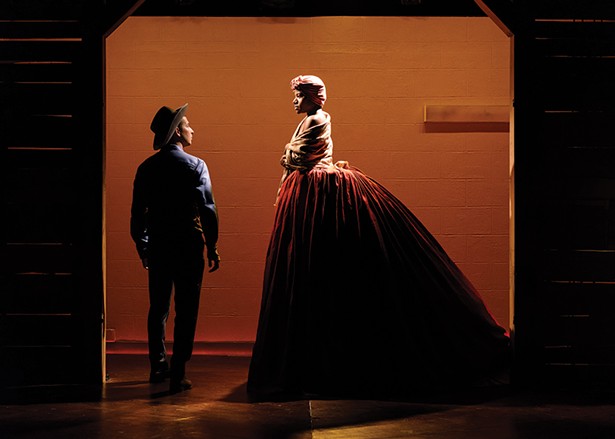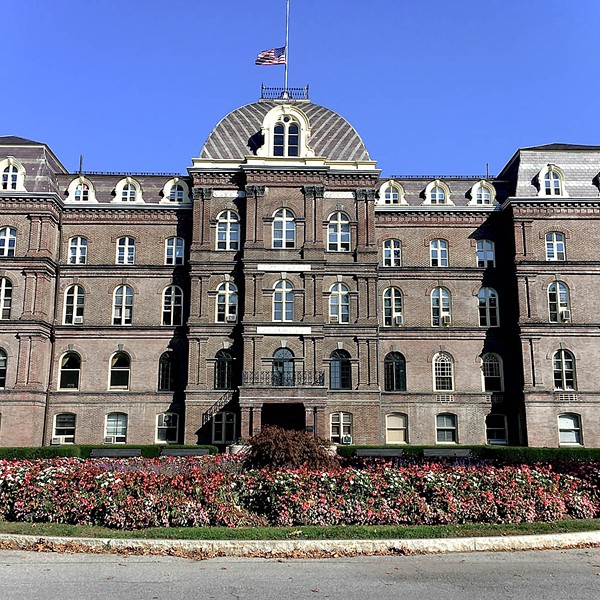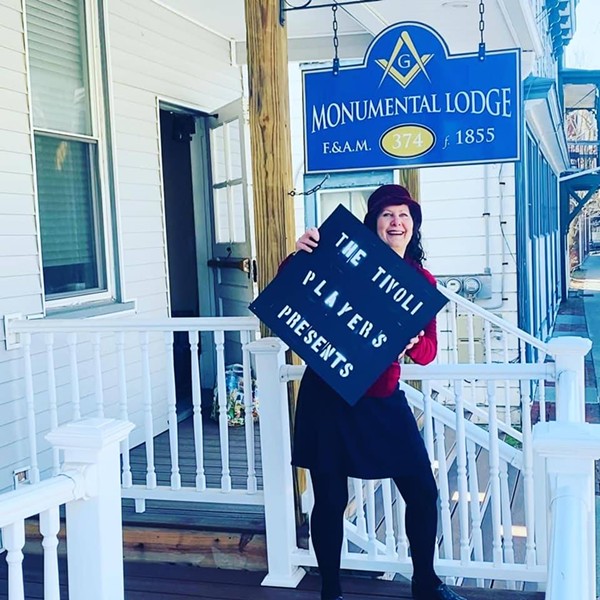Take a seat, students, for an unconventional class at Bard's Fisher Center. The lesson, delivered in a whiplash of biting comedy, concerns American history, slavery, the Civil War, and today's problematic intersection of race, sex, and power.
"Underground Railroad Game," which is cowritten and performed by Scott Sheppard and Jennifer Kidwell, is built around Sheppard's actual childhood memories of a history lesson/game devised by his teachers. Students at his Pennsylvania middle school were divided into teams representing Union and Confederate Armies, and slaves (embodied by dolls) were stealthily spirited past Southerners by the Yankees.
Set at Hannover Middle School, the action follows Teacher Caroline (Kidwell), who is black, and Teacher Stuart (Sheppard), who is white, as they reconstruct parts of the game on stage, engaging in intelligent, razor-sharp repartee along the way. When the two begin an off-duty, romantic relationship, lines are blurred between past and present, slave and free man, revealing the breadth of the cultural chasm that separates the two. Humor is a much-needed pressure-relief valve, as Kidwell and Sheppard bushwhack their way through uncomfortable territory of race, sex, and power politics.

The play's structure leaves the audience constantly questioning where, and when they are as the scenes unfold. Is it the Antebellum South? Modern-day middle school in Pennsylvania? Bard College?
"It imagines very real, concrete spaces and it also dives into phantasmagoric, psychological spaces," Sheppard cautions. "Part of the mystery of the piece is that the ground keeps falling out from underneath the audience."
The two first conceived of the piece as a 15-minute sketch in 2013, later developing it into a witty, full-length production. Since debuting the show with Ars Nova in 2016, they've toured three continents and staged over 200 performances. Last year, The New York Times named "Underground Railroad Game" one of the top 25 plays of the past 25 years.
The two-person cast requires clever juggling, to be sure, as Sheppard and Kidwell are on-stage for nearly the entire performance, playing multiple characters. "The sweat is real," Sheppard admits. The cast, crew, and audience are on a roller coaster ride together, so expect slow climbs, plummeting drops, and a fair amount of whiplash. The piece is produced in collaboration with Philadelphia-based theater company, Lighting Rod Special, where Sheppard is a co-director. According to Kidwell, the piece is "brought on home" by the heart and intelligence of director Taibi Magar.
Kidwell is quick to point out that although it may be called a "game," there's no champion when the buzzer sounds. "It's an invitation to ask questions," she explains. "It's not motivated by a desired response."
"It is a piece that eats its own tail," Sheppard adds. "It grapples with its own existence, and rather than deliver a message, it tries to open up a space for transformation."
The show is being performed during Bard's annual Hannah Arendt Center conference, whose 2019 theme of racism and anti-Semitism provides the perfect context for the play's tough themes.
"It is a piece that eats its own tail. It grapples with its own existence, and rather than deliver a message, it tries to open up a space for transformation."
tweet this
Caleb Hammons, senior producer at the Fisher Center, admits that "Underground Railroad Game" has long been on Bard's radar since its premier, due to its shocking ferocity in addressing America's ongoing relationship to racial tensions.
"The play, like the conference," he says, "asks us to come together as a community to face difficult truths about our past and present, and to consider how speaking openly about such truths, while at times uncomfortable, is a necessary act in our current culture."
Performances will take place October 9-12. $5-25.
Fishercenter.bard.edu

















